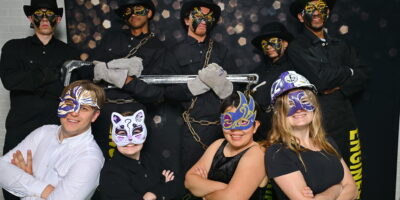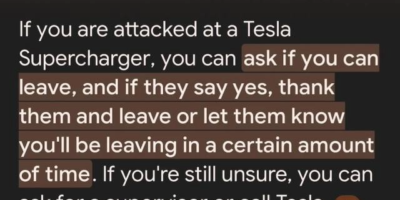The Teaching Excellence Award is awarded to an excellent instructor every semester. They are selected through a nomination period by a committee composed of both VP Academics, two at large council elected members and a representative from the Associate Dean, Teaching. The winning instructor’s nomination(s) must indicate that the instructor has contributed significantly to at least one of the following:
1. Employed non-conventional teaching techniques
2. Allowed opportunities for experiential learning
3. Showed a commitment and dedication towards ensuring academic success for students
Mohammad Nassar, since beginning to teach a few years ago, has always been above average and even excellent with his teaching endeavours. He makes sure to be reachable by students if they have any questions, which included additional help sessions if students are struggling. If up to 14 hours a week of those weren’t enough, he also has his popular Nassar hotline, which you can text him 24/7 (unless he’s sleeping) for near instantresponses. Making sure his students understood and were comfortable with concepts is a priority for him, which is also why he often makes his content applicable with both real life examples and interactive demonstrations. He constantly incorporates feedback with lecture pacing and delivery. If you want to hear more about his efforts teaching, read the interview below to find out more!
What made you want to teach in the first place?
Nassar actually came here after teaching in Alexandria University in Egypt for 6 years. He started as a TA here in 2013, for different electrical, mechanical, and mechatronics courses. He started teaching in 2016 while being a PhD, then transitioned into a sessional instructor and now a limited term lecturer. This progression allowed him to slowly add more courses to his teaching, 5 a term now, and become a staff here.
What’s your favourite aspect of teaching a course?
He started off by comparing the work to typical Engineering work. An engineer has two different types of interactions, with the product and with their client. In teaching, your product is the client. And balancing the two sets of interests is not easy. A student should be happy with teaching but also be taught skills to become an engineer. If student is always happy, the course is easy, and they don’t learn the necessary skills.
So he enjoys balancing both by reflecting math to real life, since this link is important. Reflect math to real life, this link is important.
“If you sketch a motor on the board, it will not be real. But if you have the motor and you give it to the student and he sees what you are explaining on the board, he will never forget it. (…) I’m trying to give him some long-lasting knowledge.” The courses he teach lend themselves to it since it is applied science. You can engage students by explaining concepts in terms of how they affect real situations. An example he used with power generators. Instead of memorizing it, he would show the effects of different frequencies by bringing in actual generators and testing them at these frequencies, describe how very high frequencies can lead to a blackout, and then show a blackout video or a video of a control room. “Learn theoretically, show practically.”
Where did the idea of the Nassar hotline come from? Why so many help options?
Nassar ended up starting it after some of the suicide cases at Waterloo. If students are stressed, they need a resource for help. He wants to make sure that, if they don’t feel like they have any other support options, his hotline offers help at any time. For example, if you’re studying and come to an ambiguous part you don’t understand, you can diverge from studying. You can stop studying, start searching for someone to help, or text the hotline. It’s a bit of a load, but it’s worth it.
Also after the midterm of a course, he will contact all students who got below 50%, and have weekly help sessions. He will start by summarizing, solve an exam problem and assign homework. This also works for students with other commitments like interviews who miss an important lecture. He also feels that this is worth it, since it can change how a student is studying or even make them care/ like a course for the first time. “I can’t offer marks, but I can offer time.”
How do you tailor your lectures to accommodate for student feedback?
He implements a start-stop-continue feedback which he runs every two weeks after unit. What he should start, stop, or continue doing. He will take the feedback into consideration and implement it, even within different sections at the same time.
What do you think is the most important aspect or quality of a good lecturer?
“You have to love your material, understand it, and link it to real life. (…) Then the student will get interested in equations and this analysis, because he sees what is the application of this analysis.”
What’s one thing you wish more professors did when teaching?
He thinks investing more time into helping students to complement the material delivery should happen. Most professors are offering 1-hour per week office hour, but it’s not sufficient often due to other classes or they aren’t free. If you offer several ways for students to get help, that’s a game-changer. For example, he’s teaching a first year course where students can book a 1-to-1 help with TA online with a choice of 15-minute sessions from 10 hours a week between them. Try a hotline, help sessions, and more; different ways to get help.
If you have any questions about the Teaching Excellence Award, please feel free to reach out to Thomas Dedinsky at vpacademic@engsoc.uwaterloo. ca. If you would like to be a student at large position for the Teaching Excellence Award committee, come to EngSoc Council Meeting 2 next school term!




Leave a Reply